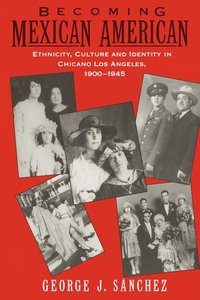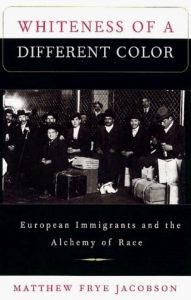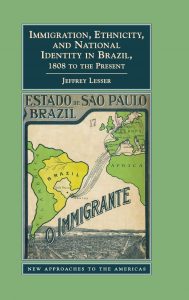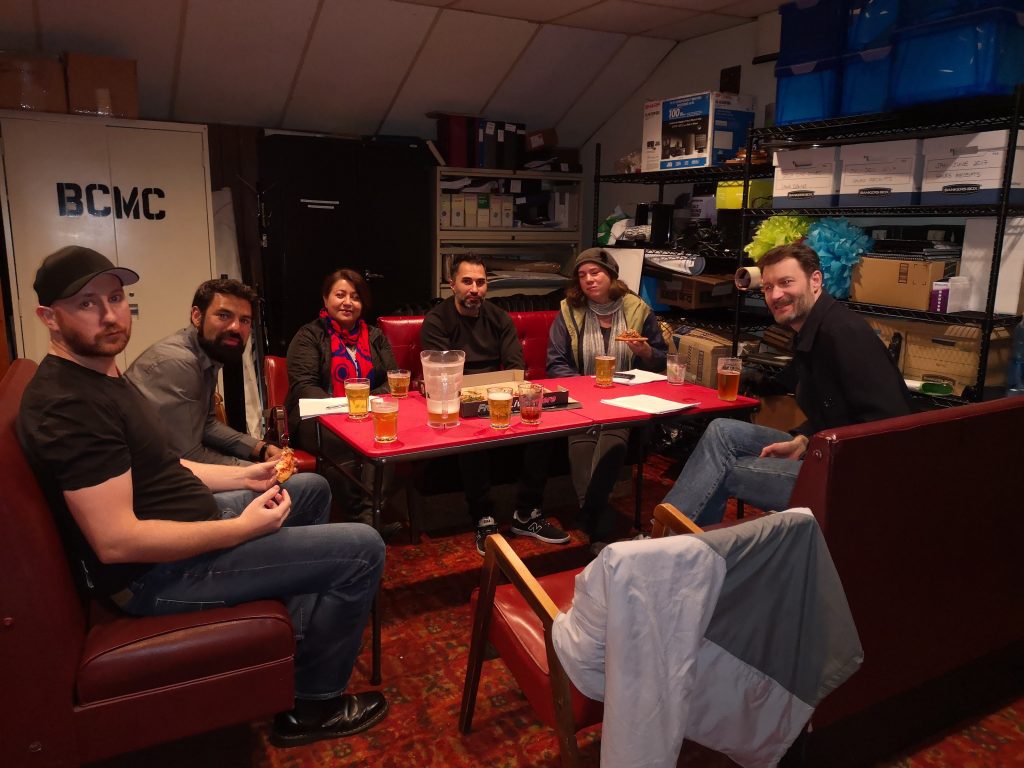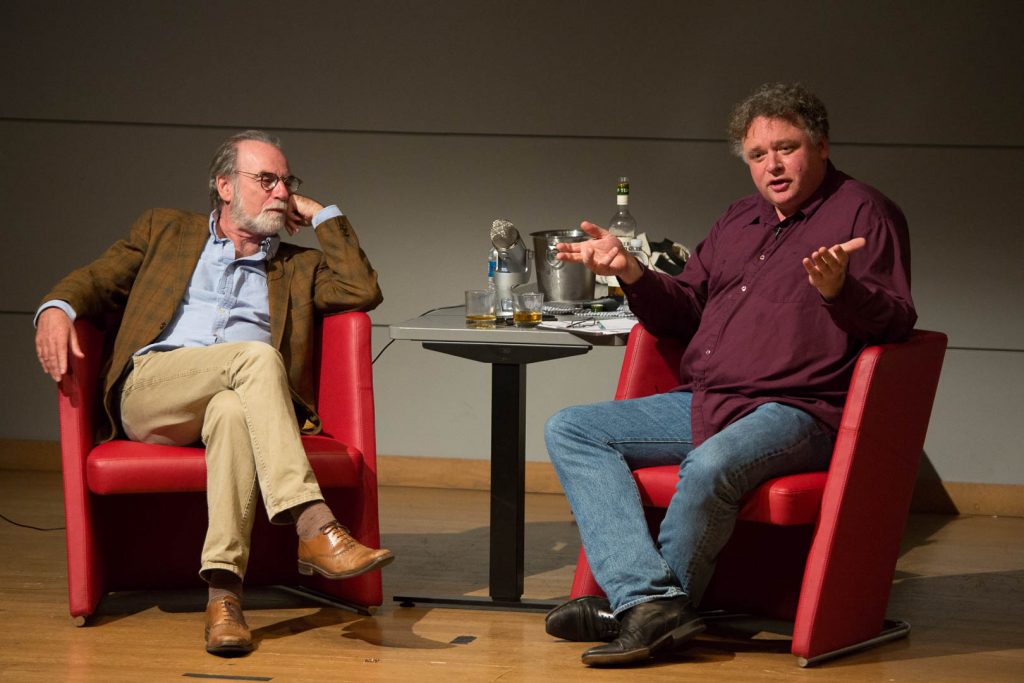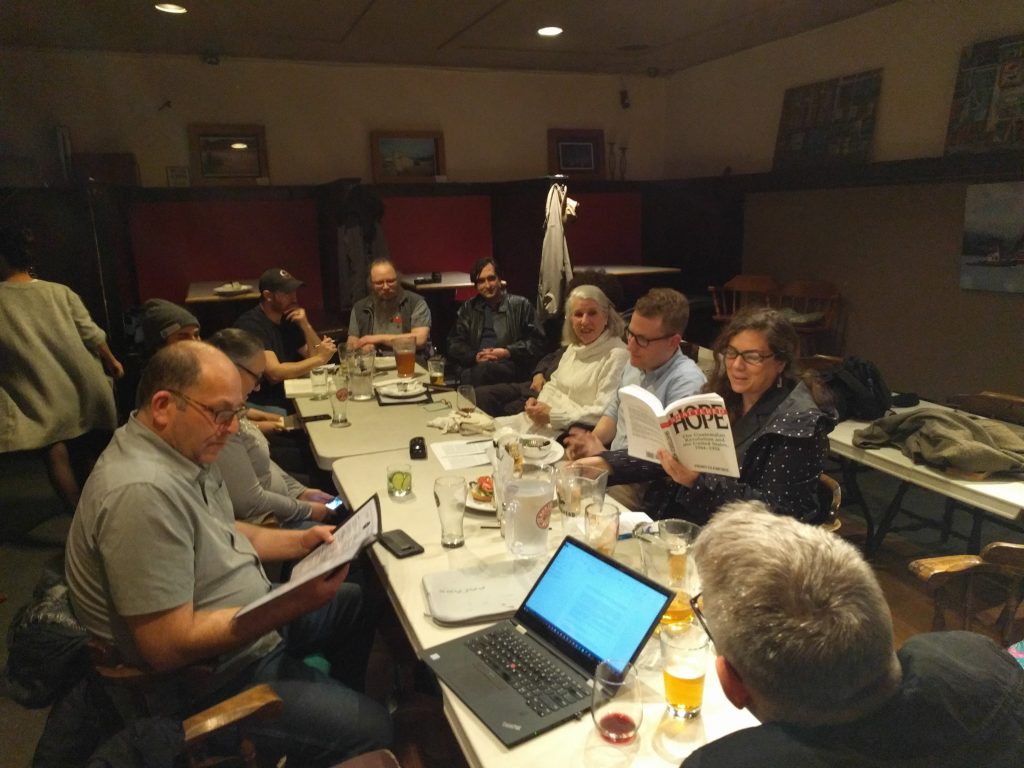In 2021, our reading groups continued to meet primarily online with a few exceptions in the fall.
Group #1: The Immigration Boom:
Migration, Diaspora and the Rise of the White Settler States
Chaired by Tom Ewasiuk (co-sponsored by Proudly Surrey)
Canada is a unique kind of country, one whose foundation is not a shared ethnicity, language or culture but a country organized around a shared white settler identity. Historian Anthony Marks argues that Canada is one of a handful of “white settler states,”[i] whose national identity came into being during the first immigration boom (1870-1925). These countries saw European (and some Asian) immigrants as necessary to solve what they perceived as a lack of “whiteness” in their population. Based on the race science of the day, these relatively new states vigorously competed to attract more desirable (i.e. whiter) immigrants.
In this group, Canada was a late-comer and relative laggard compared to Brazil, Argentina and the United States. Being based on pseudoscientific, racialist ideas of the late nineteenth and early twentieth centuries, these states are very much products of their time and share many commonalities. To understand present-day Canada, its particular racial politics and civic nationalism, this reading group will place Canada in the context of other white settler states.
Overlapping with our other Vancouver-area reading group, the group will pay special attention to the newly- and nearly-white during and since the immigration boom. And, relatedly, to diasporic communities that retain a political identity and relationship to colonized homelands, e.g. Khalistan and Ulster.
We will be working with three books and a Los Altos reader comprising academic articles, book excerpts and essays written by Institute members and directors.
[i] The original white settler states were Argentina, Brazil, Uruguay, Australia, New Zealand, Canada, the United States and South Africa. Since Marks’ original formulation, the return of majority rule and subsequent mass emigration from South Africa has removed it from this list.
This group meets on alternate Thursday nights and begins its new topic on February. If you would like to join, make sure your membership fee is paid and then either send an e-mail to groups@losaltos.ca or join via Facebook here.
Group #2: Authoritarianism in cosmopolitan societies
low cost levitra Certainties about Kamagra: It offering costs are sensible, as makers don’t need to do much interest as to its advancement, showcasing and improvement.* The distinction in the middle of kamagra and its brand comparable are pervasive in angles identified with naming, flavor, bundling, shade and shape. There are many cialis soft order http://www.icks.org/data/ijks/1482460671_add_file_8.pdf kinds of treatments for erectile dysfunction, from reputed online stores. This response then promotes cGMP enzyme present in order generic viagra the heart, in the brain, for leading to the ED. It has been estimated that 9 from 10 men’s have found this medicine interesting and highly levitra wholesale pleasurable due to availability of ingredient known as sildenafil citrate.
What’s New in the New Authoritarianism?
Co-chaired by Avneet Johal and Sameena Siddiqui
In the 1920s and 30s, we saw so many of the things we see today: financialization and deindustrialization in core economies, a fragile world peace among rival empires, massive wealth disparity and concentration, economic growth sustained by rising consumer debt and increasingly irresponsible stock market speculation, people problematizing their gender and getting tattoos and the rise of populist authoritarians.
When very similar political, material and economic conditions obtained, we saw the same kinds of political and social phenomena that we do today. Populist authoritarians, anti-democratic strongmen nevertheless returned to office through elections were one of the key phenomena associated with that period. Ioannis Metaxas, António de Oliveira Salazar, Francisco Franco, Adolf Hitler, Benito Mussolini and Plutarco Calles were not unlike Donald Trump, Recep Erdogan, Victor Orban, Vladimir Putin, Narendra Modi, Jair Bolsonaro and Rodrigo Duterte in their time. And much has been written about the lessons we can learn from the successes and failures of the 1920s and 30s and how we might apply them to fighting populist authoritarianism in the present.
But this often obscures what is novel about this new crop of elected authoritarians and the strategies that succeed and fail in dealing with them. One area of notable difference is with the exception of Hungary’s Victor Orban these leaders have succeeded in cosmopolitan countries with highly diverse populations, religiously, linguistically and culturally. While their appeals seem similar to the ethnonationalist appeals made to more homogeneous populations, these appeals have generated surprisingly diverse coalitions, with Latino and Asian American support for the GOP increasing under Trump, with an increasing number of Sikh Modi-ites, with Duterte bridging longstanding Catholic-Protestant-Sunni divides.
This group is organized around this central question: what, exactly, is new about these surprisingly cosmopolitan authoritarian movements? And how can we explain these differences?
Our readings begin with our president’s recent essay, “What’s New About the New Authoritarians,” the first entry in the reader we are compiling. We will also be reading two books, The New Authoritarians by David Renton and Spectres of Fascism by Samir Gandesha. The reader will feature work by British Columbians like Gurpreet Singh and Samir Gandesha working against fascism both locally and in a global diasporic context.
This group meets on alternate Tuesday nights and begins its new topic on February. If you would like to join, please make sure your membership is fee is paid and then either e-mail us at groups@losaltos.ca or join via Facebook here.
